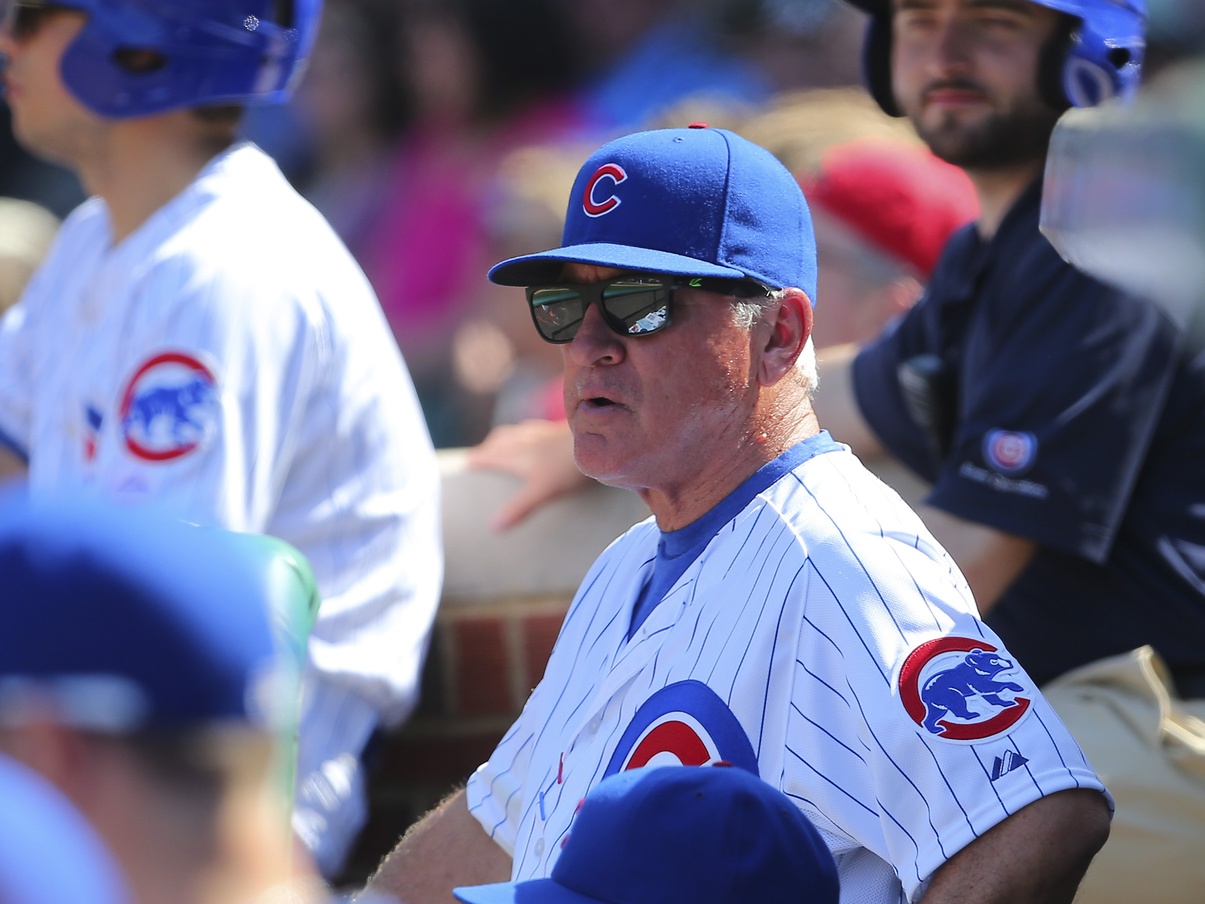Photo courtesy of Dennis Wierzbicki-USA TODAY Sports
As the Cubs continue their steady climb towards contention, it’s natural that comparisons will be drawn between this year’s team and the last Chicago Cubs playoff squad—the 97-win 2008 Chicago Cubs. Indeed, BP Wrigleyville’s own Editor-in-Chief, Sahadev Sharma, has a piece up today drawing that exact comparison, noting that the latter-day club, while likely to perform at a higher level than this year’s team, was also older and had a correspondingly dimmer future.
I’m here to argue—respectfully, of course—that the appropriate recent analog for this year’s team is not the version from 2008, but rather the version from 2007. That year’s team, while ending the year in the same place—division champions, and three and out in the postseason—put up a much more attainable 85-77 record than their successors a year later. More to the point, and again much like this year’s club, the team hovered around the .500 mark for much of April and May before kicking into high gear in the early part of June on the way to the division title.
To wit, here are each of the three relevant teams’ records at five particular points in the early parts of their seasons:
| 2007 | 2008 | 2015 | |
| Opening Day | 0 – 1 | 0 – 1 | 0 – 1 |
| April 10 | 3 – 5 | 6 – 3 | 1 – 2 |
| April 20 | 6 – 10 | 12 – 6 | 7 – 5 |
| May 1 | 11 – 14 | 17 – 11 | 13 – 8 |
| May 6 | 15 – 14 | 19 – 14 | 13 – 12 |
To me, there’s a pretty clear difference between, on the one hand, the 2007 and 2015 clubs, who both arrived somewhere near .500 by this point in the season, and the 2008 club, which was already right on its mid-90’s win pace. But the similarities go beyond just the W/L records of the three clubs, which are hardly probative. The biggest similarity, I would argue, is the consonance in the mental states of the 2007 and 2015 Cubs.
Like the ’15 Cubs, the ’07 team was coming off a miserable season—one in which they finished, at 66-96, sixth in the National League Central. This isn’t something that’s even possible any more. Also like the ’15 Cubs, the ’07 version sported a marquee manager in his first season—Lou Piniella—and a set of highly-anticipated additions—Ted Lilly, Alfonso Soriano, and Mark DeRosa. They believed themselves ready to win, but had to prove it to the rest of the division, and indeed the rest of baseball.
Consider in contrast the position the ’08 Cubs found themselves in. Putting aside the fact that they turned out to be a far better team than their predecessors, they also came into the season with a far different context: they were reigning division champions. Their task was to meet high expectations, not set them. That’s a worthy place to be, and indeed I hope nothing more than that the 2015 Cubs both set and meet high expectations this year. But if they don’t, I won’t be holding them to the standard that the 2008 Cubs set. It’ll be 2007 that I look to, for comfort and for hope.
Which brings me to my final point, which is that the evidence suggests—nay, proves—that it is possible for a team to win their division when they find themselves a mere one game over .500 on May 6. It’s happened before, for the Cubs, and it could well happen again. The excellent April that Sahadev covered this morning set expectations for short-term wins among the fanbase higher than perhaps they should have been, and three wins against strong Pirates and Cardinals teams have cooled them off correspondingly lower than their appropriate level. The answer, as usual, is that expectations should be somewhere in the middle. This is a good team, and a young team, and that means bouts of inconsistency. We’ll see where that takes the club.
Editor’s note: My goal was less to compare the 2008 team to the current one and more so to just tie in the fact that that was the last time the Cubs had a strong April. While the 2007 is certainly a better comparison, I may look to 2003. That was a team that many felt was a year away, but the rookies performed better than hoped and carried them to a surprise postseason run—if that were to happen again, I think we can all agree that we hope the following years are filled with some better luck as far as injuries go. But we’re getting ahead of ourselves with that comparison, right now it’s just wishful thinking when it comes to the Cubs playing games in October. However, coming off a bad year, the addition of a big-name manager, and a busy offseason all certainly make 2007 a very good season to look at when looking for an analogy to the 2015 team.
